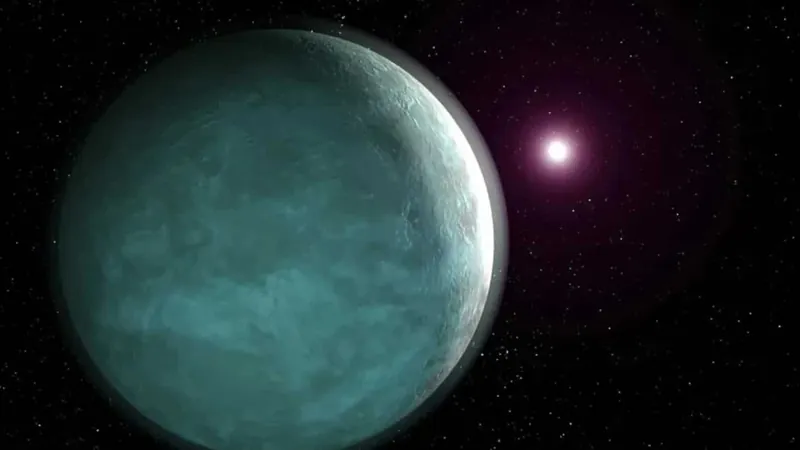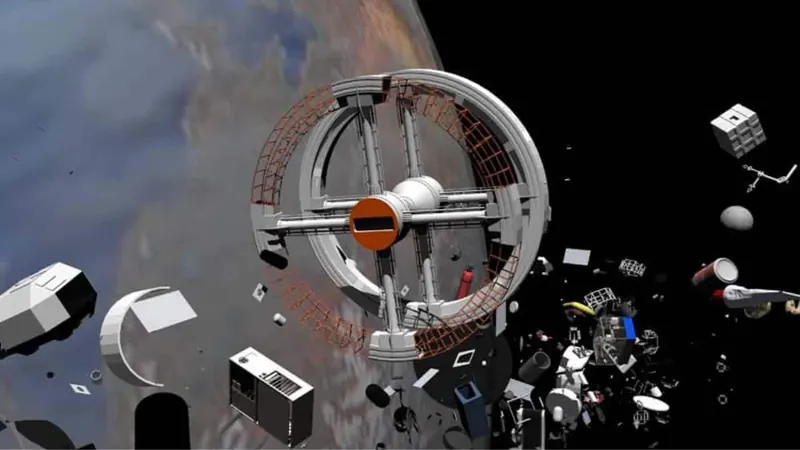
A Stunning Discovery: Is the 'Steam World' of GJ 9827 d the Key to Finding Alien Life?
2024-10-10
Author: Sophie
Introduction
Scientists have made a groundbreaking discovery using the James Webb Space Telescope (JWST) that could reshape our understanding of habitable worlds beyond our Solar System. The focus of this study was the intriguing exoplanet GJ 9827 d, located approximately 98 light-years away in the constellation Pisces, which appears to boast an atmosphere rich in water vapor, earning it the exciting nickname of a "steam world."
The Role of JWST in Discovering Habitable Worlds
This international research effort, led by Canadian scientists, highlights the importance of JWST in probing the atmospheres of exoplanets—something that had largely been the domain of larger gas giants until now. The atmosphere of GJ 9827 d contains a high concentration of heavy molecules, including substantial water vapor, a promising sign in the search for extraterrestrial life.
A Landmark Discovery
Earlier this year, findings from the Hubble Space Telescope played a pivotal role in establishing that GJ 9827 d is the smallest exoplanet confirmed to possess an atmosphere. This landmark discovery raises new possibilities for astronomers and astrobiologists who are on the hunt for life beyond our planet.
Challenges in Detecting Atmospheres
For years, detecting atmospheres on smaller, Earth-like exoplanets has posed a formidable challenge. Lead researcher Piaulet-Ghorayeb noted, "So far, all detected planets with confirmed atmospheres have been gas giants or mini-Neptunes, predominantly characterized by hydrogen," which sets them apart from terrestrial planets like Earth that have atmospheres dominated by heavier elements.
Utilizing Advanced Technology
The observations conducted by Piaulet-Ghorayeb and her team utilized the Near-Infrared Imager and Slitless Spectrograph (NIRISS) aboard the JWST, a highly sophisticated instrument that enables scientists to analyze starlight that passes through a planet’s atmosphere during a transit in front of its host star, GJ 9827.
Establishing Atmospheric Conditions
The combination of new data from JWST and previous observations from Hubble allowed researchers to firmly establish the atmospheric conditions of GJ 9827 d. They discovered that its atmospheric composition stands out from that of larger planets dominated by hydrogen, presenting a molecular weight that’s more comparable to the carbon dioxide or nitrogen-rich atmospheres that scientists are increasingly interested in when searching for life.
Implications for the Search for Life
Piaulet-Ghorayeb expressed excitement about these findings, stating, "It's crucial because we are now closer to identifying the types of atmospheres where life could potentially exist." The researchers speculate that GJ 9827 d's atmosphere, filled with heavier molecules and significant quantities of water vapor, might very well harbor conditions suitable for life, making it a prime candidate for further investigation.
Conclusion
As our explorations of space continue, GJ 9827 d stands as a beacon of hope and possibility in our quest to answer the age-old question: Are we alone in the universe? Stay tuned for more astonishing revelations as scientists further delve into the mysteries of our cosmos.









 Brasil (PT)
Brasil (PT)
 Canada (EN)
Canada (EN)
 Chile (ES)
Chile (ES)
 España (ES)
España (ES)
 France (FR)
France (FR)
 Hong Kong (EN)
Hong Kong (EN)
 Italia (IT)
Italia (IT)
 日本 (JA)
日本 (JA)
 Magyarország (HU)
Magyarország (HU)
 Norge (NO)
Norge (NO)
 Polska (PL)
Polska (PL)
 Schweiz (DE)
Schweiz (DE)
 Singapore (EN)
Singapore (EN)
 Sverige (SV)
Sverige (SV)
 Suomi (FI)
Suomi (FI)
 Türkiye (TR)
Türkiye (TR)